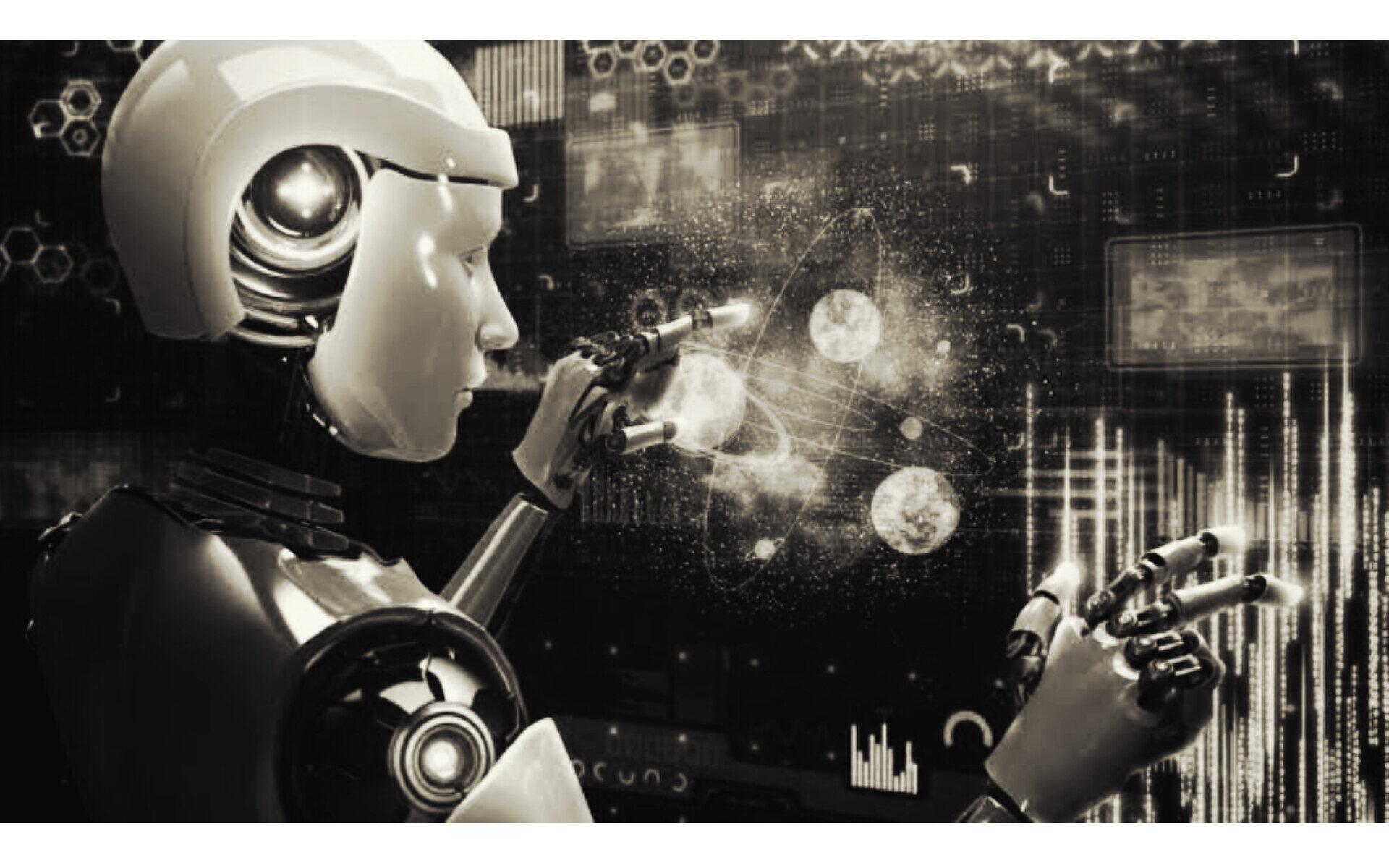The Future of Artificial Intelligence: –
The Future of Artificial Intelligence (AI), once confined to the realms of science fiction, has rapidly turned into a powerful force creating our modern world. In an age where machines can understand language, recognize images, and make decisions, AI is no longer a vision of the future. It is an present reality that has profound implications for the future. The continuous development of AI technology promises to revolutionize the way we live, work, and interact with our environment.
As we look into the horizon of AI, it is important to understand the trends and applications that are pushing this change. This blog explores the incredible journey of AI from its inception to its current state, and seeks to move to unknown future areas. We will open the multifaceted aspects of AI, from deep learning and complexity of neural networks to health care, autonomous vehicles, natural language processing, and its key applications in many other domains.
The Future of Artificial Intelligence, as we will discover, holds immense promise and offers a complex tapestry of challenges. It is a journey that has AI’s compatibility with other important technologies such as profound progress, ethical considerations, and quantum computing. In this research, our goal is to paint a comprehensive picture of the future of artificial intelligence, which is dynamic, transformative, and identical to opportunities and responsibilities. So, fasten your seat belt as we embark on this fascinating journey into the heart of AI’s future, a future that promises to redefine what is possible in the realm of technology.
The AI Revolution :-
In the annals of technological advancement, few phenomena have been as transformative and fascinating as the rise of The Future of Artificial Intelligence (AI). The AI revolution is a story of human ingenuity, a journey that has taken us from the realm of science fiction to a reality where machines can think, learn and make decisions. This revolution is not just about the development of smarter software or faster computers. (The Future of Artificial Intelligence)
It represents a profound change in the way we understand and interact with the world around us. AI, once considered a distant dream, is now deeply woven into the fabric of our daily lives. From the convenience of voice-activated digital assistants to highly accurate recommendations on streaming platforms, AI is the invisible hand guiding our choices and shaping our experiences. It has infiltrated industries from healthcare and finance to transportation and entertainment, redefining the way we work, play and live. Still, the AI revolution is far from over. In fact, it is gathering momentum, accelerating at a phenomenal rate.
As we step into The Future of Artificial Intelligence, it’s important to understand the complex web of trends, technologies, and possibilities that lie ahead. This blog will embark on a journey to uncover the secrets of the AI revolution, exploring the trends that are taking AI to new heights and the applications that are reshaping our world. From the astonishing capabilities of deep learning and neural networks to AI’s profound impact on healthcare, autonomous vehicles, and natural language processing, we’ll dissect the components of this revolution.
We’ll also tackle ethical dilemmas, biases, and accountability issues that have emerged as AI matures. And on the horizon, we’ll see glimpses of convergence between AI and other revolutionary technologies, such as quantum computing, that promise to push the boundaries of what can be achieved. The AI revolution isn’t just about the future; It’s about the present. It is a story of innovation, curiosity, and the relentless pursuit of knowledge.
As we navigate the fascinating landscape of AI’s potential, we will face both the promises and the challenges it brings. The AI revolution is a testament to our ability to shape our destiny and unlock the deep potential of machines. So, let’s embark on this exciting journey to explore the AI revolution, a story that continues to unfold, shape and redefine the world around us.(The Future of Artificial Intelligence)
Deep Learning and Neural Networks:-
Deep learning, a subfield of artificial intelligence, is at the forefront of the technological revolution. At its core are neural networks, computational structures inspired by the human brain. These networks consist of interconnected layers of artificial neurons that can process vast amounts of data, recognize patterns, and make decisions. Deep learning has revolutionized AI, enabling machines to excel at tasks such as image and speech recognition, natural language understanding, and autonomous decision-making.
Its ability to automatically learn from data, without explicit programming, has opened up new possibilities and is a driving force behind many AI breakthroughs. Deep learning and neural networks are the engines powering the AI revolution, leading us to a future where machines can understand, adapt and make intelligent choices.(The Future of Artificial Intelligence)
AI in Healthcare:-
The integration of The Future of Artificial Intelligence (AI) into healthcare has ushered in a transformative era of innovation and efficiency. AI’s ability to analyze vast amounts of medical data, from patient records to diagnostic images, has brought healthcare to new levels of accuracy and efficiency. With AI-powered diagnostic tools, diseases can be detected at earlier stages, allowing for more timely and successful treatment.
Personalized medicine, made possible by AI, tailors treatment plans for individual patients, improving outcomes while minimizing adverse effects. AI-powered telemedicine platforms have increased access to healthcare services, especially in underserved areas. In addition, AI-driven research in drug discovery and genomics is accelerating the development of new treatments and more targeted interventions. AI’s potential to revolutionize healthcare is not just a promise but a reality, reducing the burden on healthcare providers to deliver better patient care and more accessible medical services. (The Future of Artificial Intelligence)
Autonomous Vehicles
The advent of autonomous vehicles represents a technological leap that has profound implications for mass transportation and society. These vehicles, often called self-driving cars, rely on a combination of advanced technologies, including artificial intelligence (AI), sensors and machine learning, to navigate and make decisions in real time. Autonomous vehicles have the potential to revolutionize the way we walk, promising a safer and more efficient transportation system.
They can significantly reduce the number of accidents caused by human error, improve traffic flow, and increase accessibility, especially for people with limited mobility. As self-driving cars continue to undergo rigorous testing and development, they hold the promise of transforming our cities, reducing congestion, and reducing the environmental impact of transportation. The evolution of autonomous vehicles is not just a technological feat, but a potential shift in how we envision the future of mobility.(The Future of Artificial Intelligence)

The Future of Artificial Intelligence
Natural Language Processing (NLP) :-
Natural language processing is a branch of artificial intelligence that focuses on the interaction between computers and human language. Through the application of NLP, machines can understand, interpret and reproduce human language in ways that were once thought impossible. NLP has become an integral part of various aspects of our digital lives, from chatbots and voice assistants to speech translation services that provide conversational interfaces that bridge communication gaps around the world.
NLP’s core technology, including machine learning algorithms and deep neural networks, allows for sentiment analysis, speech recognition, and the extraction of valuable insights from vast amounts of textual data. This transformative field of AI is not only streamlining human-computer interaction but also finding applications in areas such as customer service, healthcare, and information retrieval, making it an indispensable part of the modern technological landscape. (The Future of Artificial Intelligence)
AI in Finance
Artificial intelligence (AI) has revolutionized the financial sector by enhancing the process of efficiency, accuracy and decision-making. In finance, AI applications range from algorithmic trading and risk management to fraud detection and customer service. Through the machine learning algorithm, AI analyzes extensive datasets to identify patterns and trends, and enables more informed decisions of investment. Additionally, AI-powered chatbots and virtual assistants enhance customer interactions, providing real-time support and personal services. Although AI brings unprecedented benefits to the financial industry, organizations should prioritize ethical considerations, data protection, and regulatory compliance to ensure responsible and transparent deployment of these technologies.
Generative Adversarial Networks (GANs)
Advertised networks play an important role in modern communication, which act as the backbone of information exchange and communication. These networks are prominently prominent in various domains, from social media platforms and e-commerce websites to streaming services and online ads. Advertising networks use sophisticated algorithms and data analytics to target specific audiences, improve content delivery and enhance user experience.
As the technology progresses, these networks are ready to meet the growing demands of an integrated world, promote seamless interactions and facilitate the transmission of information on diverse platforms. Advertising networks everywhere highlights their importance in the formation of digital landscapes and the importance of strong infrastructure and intelligent design in providing content and services to the global audience.
AI Ethics and Bias
AI ethics is an important consideration in the development and deployment of artificial intelligence systems. Ensuring justice and reducing prejudice is central to ethical AI practices. Prejudice based on biased training data or the influence of human biases can inadvertently be embedded in the algorithm. Resolving these issues requires a commitment to transparency, accountability and diverse representation in AI development teams.
The ethical AI framework aims to prevent discriminatory results, promote involvement and fairness. Continuous monitoring and evaluation of AI systems for possible biases are necessary measures to build confidence and ensure that AI technologies play a positive role in society without reinforcing existing biases or differences. Balancing between innovation and moral responsibility is a major challenge in the emerging scenario of AI’s development and deployment.
Quantum Computing and AI
The confluence of quantum computing and artificial intelligence (AI) represents a promising front in technological development. Quantum computing, taking advantage of the principles of quantum mechanics, has the ability to solve complex problems faster than classical computers. By connecting with AI, this coordination can revolutionize tasks such as reform, machine learning, and pattern recognition.
Quantum computing’s ability to process large amounts of data simultaneously is well compatible with the data-based nature of AI applications, promising success in solving complex problems that currently exceed classical computing capabilities. However, utilization of this ability requires tackling technical challenges, including error correction and scaleability. The integration of quantum computing and AI is likely to usher in a new era of computational power, which advances the limits achieved in information processing and analysis.

The Future of Artificial Intelligence
AI for Climate Change and Sustainability
Artificial intelligence (AI) emerges as a key ally in global efforts to combat climate change and promote sustainability. AI applications play an important role in environmental monitoring, resource optimization, and climate modeling. Machine learning algorithms analyze extensive datasets, predicting climate samples, assessing environmental hazards, and helping to develop more efficient renewable energy strategies.
AI-operated solutions improve energy consumption, increase proper agriculture, and facilitate smart city planning, all of which help reduce carbon marks. Additionally, AI technologies promote innovation in sustainable practices by enabling the development of cleaner technologies and more efficient use of resources. The integration of AI in climate change initiatives identifies a powerful tool to create a more sustainable and flexible future by addressing environmental challenges with unprecedented accuracy and speed.
Education and AI
Artificial Intelligence (AI) is reshaping the education landscape by offering innovative solutions to enhance learning experiences. AI applications in education include personalized learning platforms, intelligent tutoring systems, and automated grading, tailoring learning to individual student needs. Machine learning algorithms analyze student performance data, providing educators with insights for targeted interventions.
Ufc Virtual classrooms and AI-powered educational tools facilitate remote learning and accessibility. However, the ethical deployment of AI in education requires careful consideration of privacy, transparency, and the potential for reinforcing biases. Striking a balance between technological advancements and the human-centered aspects of education is critical to harnessing the full potential of AI in fostering a more adaptive and inclusive learning environment.
conclusion : –
Finally, the integration of artificial intelligence (AI) into various aspects of our lives represents a transformative force with both great potential and responsibility. Whether in finance, networks, ethics, quantum computing, or education, AI is making unprecedented progress. However, ethical considerations related to impartiality, transparency, and privacy demand careful attention to ensure the development and deployment of responsible AI.
Additionally, as AI plays a role in addressing global challenges such as climate change, its role in shaping a sustainable future is becoming increasingly important. The synergy between quantum computing and AI promises to redefine the boundaries of computational capabilities. In education, AI stands as a catalyst for personalized and inclusive learning. As we navigate this evolving landscape, a commitment to ethical practices, keeping in mind its social implications and creating a technologically advanced yet ethically sound future is essential.
Read more The Electrifying Revolution: Embracing Electric Cars for a sustainable future
